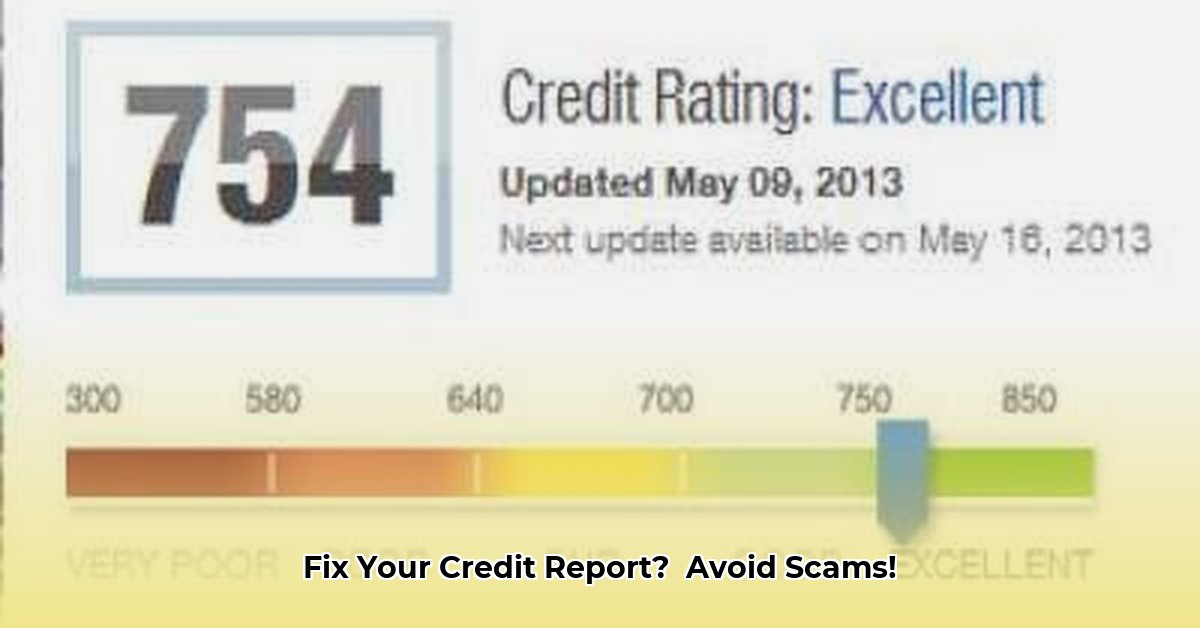
CPN Scams: The Truth About Credit Repair Deception
The promise of a "CPN with 700 credit score free" is alluring, especially for those struggling with poor credit. However, this enticing offer masks a dangerous reality: Credit Privacy Numbers (CPNs) are fraudulent and illegal. This article exposes the CPN scam, clarifies the legal ramifications, and provides a practical guide to legitimate credit repair.
The CPN Scam: Why It Fails
Companies selling CPNs falsely claim they create a separate credit profile, magically boosting your score. This is a blatant lie. CPNs are not recognized by major credit bureaus (Equifax, Experian, and TransUnion). Attempting to use a CPN constitutes identity theft—a serious crime with severe consequences. Your credit score reflects your financial history; a CPN attempts to fabricate a false one. Is risking potential fines or imprisonment for a fake score worth it? The answer is a resounding no.
While some argue that CPNs might help separate personal and business credit, this is highly debatable, context-dependent, and legally risky. It's certainly not a guarantee of a 700 credit score, and most financial experts strongly advise against it.
Have you ever wondered why these schemes persist? The answer lies in the desperation of those seeking quick credit solutions. Many individuals facing financial hardship fall prey to these scams, only to experience further damage to their credit and personal well-being.
Legitimate Credit Repair: A Step-by-Step Guide
Building strong credit takes time and consistent effort, but it’s achievable through proven methods. Here's a practical guide:
1. Understand Your Credit: Obtain your free annual credit reports from AnnualCreditReport.com and carefully review them for errors. Dispute any inaccuracies immediately. This forms the base for your credit-building journey. Did you know that correcting errors on your credit report can have a significant positive impact on your score?
2. Pay Bills On Time: This is crucial. Consistent on-time payments are foundational to building good credit. Even a single late payment can negatively impact your score. Automate payments if necessary to maintain consistency.
3. Manage Your Debt Wisely: High debt severely impacts your credit score. Keep credit card utilization low (the amount of credit used compared to available credit). Aim for under 30%. Aggressively pay down existing debts.
4. Explore Credit Builder Loans: These specialized loans help build credit by demonstrating responsible repayment behavior. Small, manageable monthly payments improve your creditworthiness over time.
5. Monitor Your Progress: Regularly check your credit reports to track your improvement. Consistent effort and patience are key. Celebrating small victories along the way maintains motivation.
Risk Assessment: CPNs vs. Legitimate Credit Repair
The table below highlights the stark differences between using a CPN and legitimate credit repair:
| Method | Probability of Success | Legal Ramifications | Financial Risk | Time to Results |
|---|---|---|---|---|
| Using a CPN | Extremely Low | Extremely High | Extremely High | Immediate (fraudulent) |
| Legitimate Credit Repair | Moderate to High | None | Moderate | 6-24 months |
Rebuilding Credit After a CPN Scam
Falling victim to a CPN scam can feel frustrating. However, rebuilding your credit is possible.
Understanding the Aftermath of a CPN Scam
CPNs are marketed as alternative IDs to replace your Social Security Number (SSN), but using them for credit is illegal fraud. The consequences can be severe, including fines, imprisonment, and a severely damaged credit history, often coupled with identity theft.
Rebuilding Your Credit: A Practical Approach
Follow these steps to begin the process of rebuilding your credit:
1. Obtain and Review Credit Reports: Secure your credit reports from all three major bureaus (Equifax, Experian, and TransUnion).
2. Dispute Inaccurate Information: Carefully review for errors, particularly those related to your CPN attempts. Dispute any inaccuracies immediately.
3. Create a Budget and Manage Debt: Develop a budget to track income and expenses. Prioritize paying down existing debts, especially high-interest ones.
4. Focus on Payment History: Make on-time payments a priority. Set up automatic payments to avoid late fees.
5. Consider a Secured Credit Card: A secured card requires a security deposit, making it easier to establish credit history.
6. Monitor Your Progress: Regularly review your credit reports to track your improvement.
Long-Term Credit Health Strategies
Maintaining good credit requires long-term commitment. Focus on consistent responsible financial behavior, such as maintaining a low credit utilization ratio. Consider professional financial counseling for personalized guidance and explore educational resources to improve your financial literacy.
Remember, rebuilding your credit takes time and dedication, but it's achievable. Choosing the legal path, avoiding CPN scams and embracing responsible financial habits, will lead to long-term financial stability and well-being.